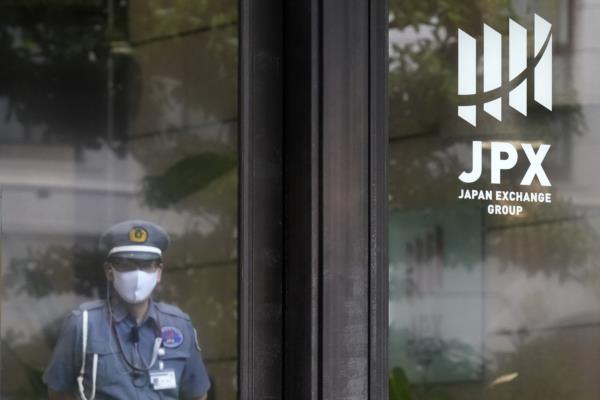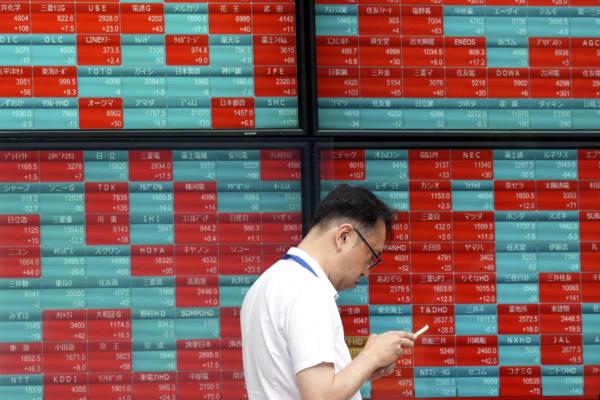
Asian shares traded mixed on Wednesday as investors assessed recent data indicating a slowdown in the U.S. economy, which presents both opportunities and challenges for Wall Street.
Japan's Nikkei 225 declined by 0.9% to 38,490.17, while Australia's S&P/ASX 200 rose by 0.4% to 7,769.00. South Korea's Kospi surged by 1.0% to 2,689.50. Hong Kong's Hang Seng slipped by nearly 0.1% to 18,428.62, and the Shanghai Composite dipped by 0.8% to 3,065.40.
Analysts noted that recent data on wage growth in Japan may become more pronounced following the spring labor negotiations, potentially leading the Bank of Japan to consider raising interest rates.
On Tuesday, the S&P 500 inched up by 0.2% to 5,291.34, with more stocks falling than rising within the index. The Dow Jones Industrial Average increased by 0.4% to 38,711.29, and the Nasdaq composite added 0.2% to 16,857.05.



In the bond market, Treasury yields declined after a report revealed that U.S. employers were advertising fewer job openings at the end of April than anticipated.
Market participants are hoping for a slowdown in the job market and overall economy to curb inflation and prompt the Federal Reserve to reduce interest rates, alleviating pressure on financial markets. Traders have raised their expectations for rate cuts later this year following the report.
However, there is a risk that an economic overshoot could lead to a recession, resulting in widespread layoffs and weakened corporate profits, which could drag down stock prices.
The recent report indicated that the number of U.S. job openings at the end of April fell to the lowest level since 2021, suggesting a return to a more typical job market post the COVID-19 pandemic disruptions.
Concerns about a slowing economy were further highlighted by a report showing U.S. manufacturing contracted in May for the 18th time in 19 months. This has impacted the price of crude oil, with a barrel of U.S. crude dropping close to 5% this week, leading to reduced growth in fuel demand.
Oil-and-gas stocks experienced significant losses for a second consecutive day, with companies like Halliburton dropping 2.5%. Benchmark U.S. crude lost 8 cents to $73.17 a barrel, while Brent crude fell 8 cents to $77.47 a barrel.
Companies sensitive to economic cycles, such as steel makers and mining firms, also saw sharp declines. Freeport-McMoRan, a copper and gold miner, lost 4.5%, and steelmaker Nucor fell 3.4%. The Russell 2000 index, comprising smaller companies that typically perform well during strong economic conditions, fell by 1.2%.
In currency trading, the U.S. dollar strengthened to 155.90 Japanese yen from 154.84 yen, while the euro declined to $1.0875 from $1.0883.







